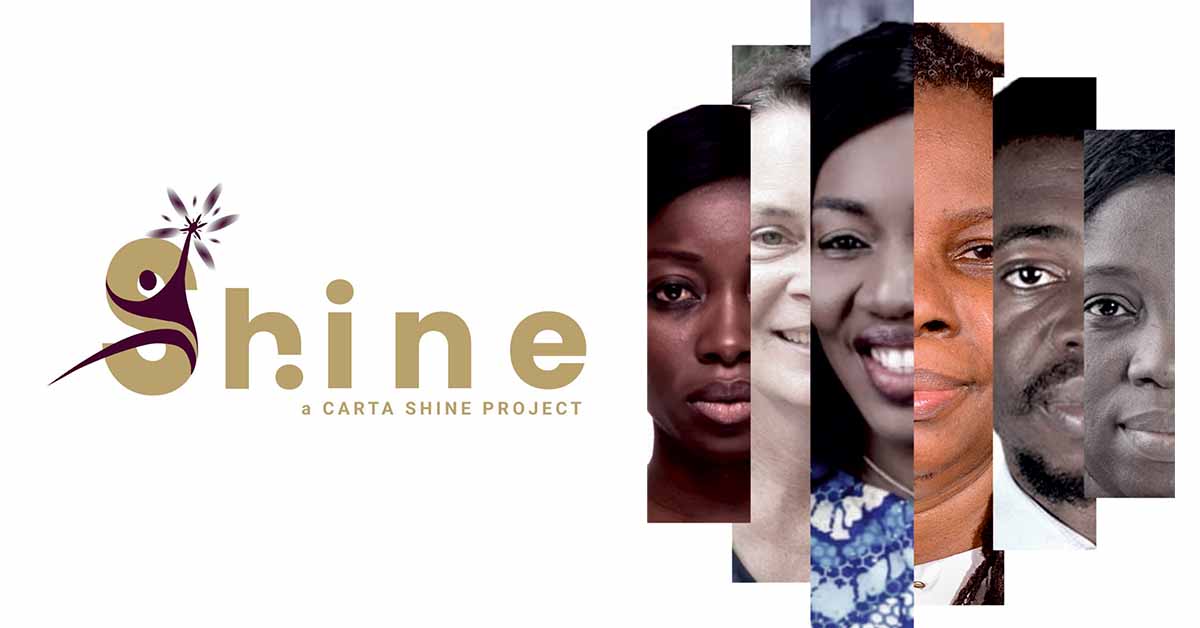Sexual harassment (SH) is a complex issue, particularly in academic settings, where it includes requests for sexual favors and verbal or physical sexual activities that are used to manipulate academic or professional outcomes. The culture of silence surrounding SH, unequal power dynamics, fear of retaliation, and stigma, contribute to the underreporting of SH, making it a pervasive problem in institutions of higher education.
Breaking barriers and pioneering change, Boladale Mapayi, a CARTA graduate of cohort 4 from Obafemi Awolowo University (OAU) is a pivotal force in the fight against SH within Nigerian educational institutions. Through a re-entry grant awarded in 2022 as part of the CARTA postdoctoral program, Boladale is leading the implementation of a study project that aims to uncover the deep-seated issues of SR within higher education institutions in Nigeria. Dubbed SHINE Project (Sexual Harassment In Nigerian Educational Institutions), the grant commenced in July 2022, running up to October 2023.
The SHINE project has sought to explore the complex perceptions driving both heterosexual and same-sex SH among students and staff, understand the social and mental health consequences faced by survivors, and assess the institutional mechanisms for preventing and responding to SH. Under Boladale’s steadfast leadership, the project is more than just an investigation; it is a call to action.
The onset of the project was marked with stakeholders’ meetings (November 2022) to foster community engagement and include the helpful ideas of the campus community in the research process. Targeting staff and students of selected universities – OAU, the University of Ibadan, and the University of Lagos- the study employed a mixed methods design. This has comprised policy review, surveys, focused group discussions, in-depth interviews, and key informant interviews.
Research conducted finds comprehensive but potentially flawed SH policies in the selected universities. Survivors reported various forms of harassment in locations like offices, lecture theaters, and libraries. Reasons for not reporting included stigma, lack of evidence, and fear of retaliation. Both same-sex and heterosexual harassment were prevalent, with male perpetrators. Participants often attributed harassment to indecent dressing. Many campus community members were unaware of their institution’s harassment policies and support resources. Generally, there is a need for increased SH awareness and training in higher education institutions.
In August 2023, SHINE conducted three dissemination meetings, bringing together stakeholders, including student representatives, lecturers, researchers, and anti-sexual harassment committee members. These meetings allowed for open discussions about the study’s findings, addressing concerns surrounding dress codes, and encouraging further collaboration on institutional responses to SH.
As principal investigator, the re-entry grant has allowed Boladale to engage in several activities to further her opportunities for training and the agenda of the SHINE project. In June 2023, she visited Brown University in Rhode Island, USA, where she engaged in critical discussions with international mentors and faculty, laying the groundwork for future collaborations and partnerships. Additionally, a mentor from Brown University, Prof Abigail Harrison visited OAU, facilitating meaningful dialogues and collaborative initiatives between the institutions. These initiatives included training seminars, webinars, and discussions focused on the prevention and response to sexual harassment in Nigerian universities. Collectively, the activities involved over 100 participants drawn from the antisexual harassment committee, faculty gender focal persons, civil service organization representatives, researchers, staff, and students.
The endeavors have not only expanded Boladale’s knowledge and network but have also forged crucial connections for future change-making in the fight against sexual harassment. Between July, September, and October 2023, she presented findings from the study at different national meetings in Nigeria and various international conferences. Some of the conferences include the Royal College of Psychiatrists (RCPsych) International Congress, July 10 – 13, 2023 in Liverpool, UK; Australian Psychosis Conference, September 11 – 13, 2023; in Sydney, Australia; and the 23rd World Congress of Psychiatry, September 28 – October 1, 2023, in Vienna, Austria.
Boladale’s connection with CARTA and the SHINE Project reflects the transformative power of educational and capacity-strengthening programs. Before CARTA, Boladale was a dedicated scholar with 15 authored papers in need of a nurturing environment to build scholarly acumen and innovative teaching methodologies. Her academic trajectory underwent a profound transformation within the rich and diverse resource hub of CARTA. The program’s influence significantly enhanced her research expertise, a cornerstone for her academic elevation to the coveted rank of professorship (First Female Professor of Psychiatry at OAU). Also contributing to this milestone was her publication count, which surged to over 35 peer-reviewed papers.
The program’s strategic interventions, spanning Joint Advanced Seminars (JASes), training workshops, and re-entry grants, nurtured Boladale’s growth as a researcher, educator, and advocate. Equipped with innovative teaching methodologies emphasizing critical thinking, Boladale now nurtures a generation of students who excel academically, fostering a more dynamic learning environment. Collaborating with mentors, she is an advocate for girls, women, and adolescent health, contributing to policy formulation and agenda setting at institutional, national, and regional levels. Her advocacy efforts led to the formation of a mentorship club, bridging the gender gap in research output and fostering a network of empowered female researchers across Africa.
CARTA celebrates Boladale’s growth, potential to break barriers and pioneer change, and unwavering commitment to combat sexual harassment and safeguard the rights of girls and women.




